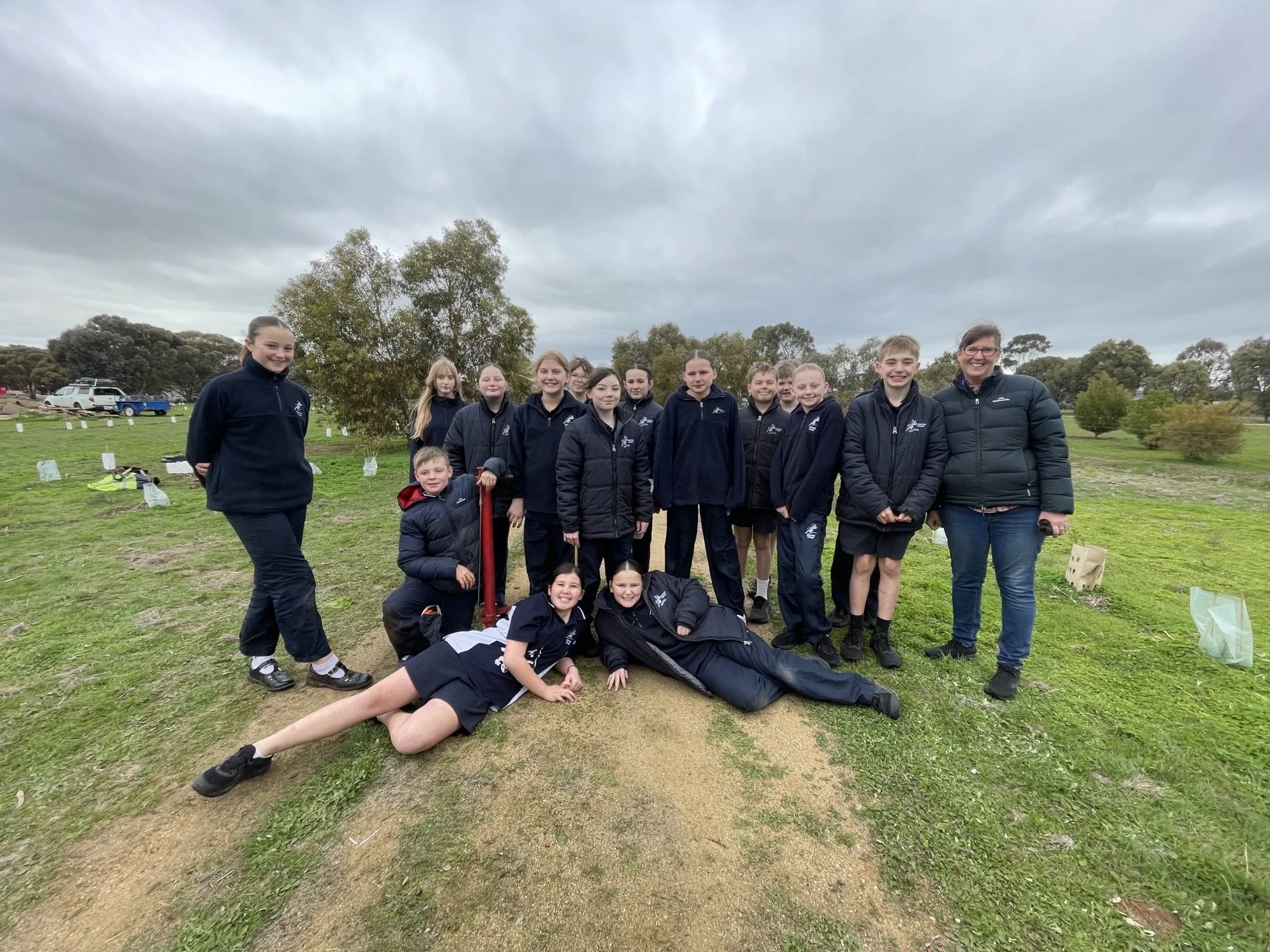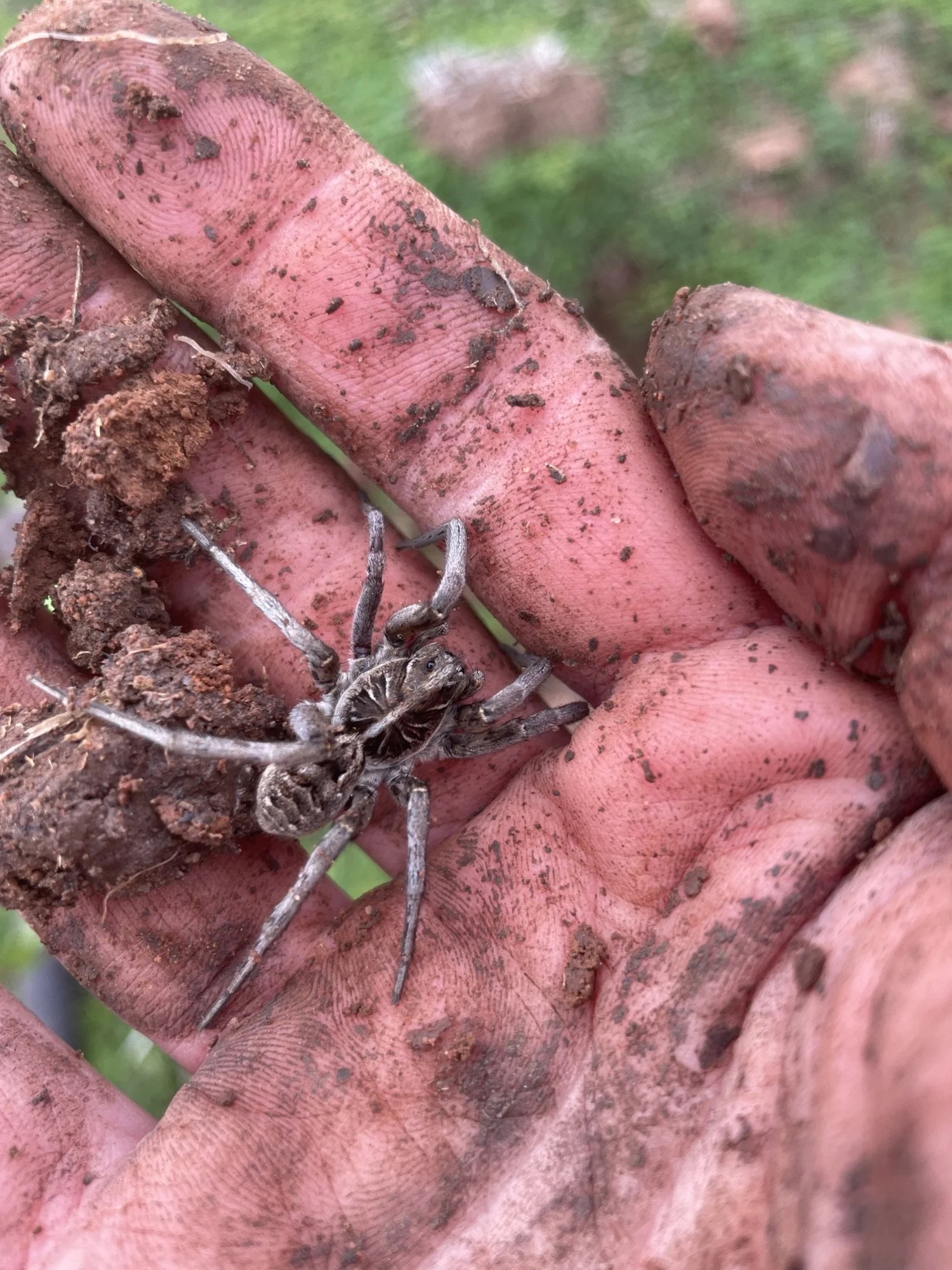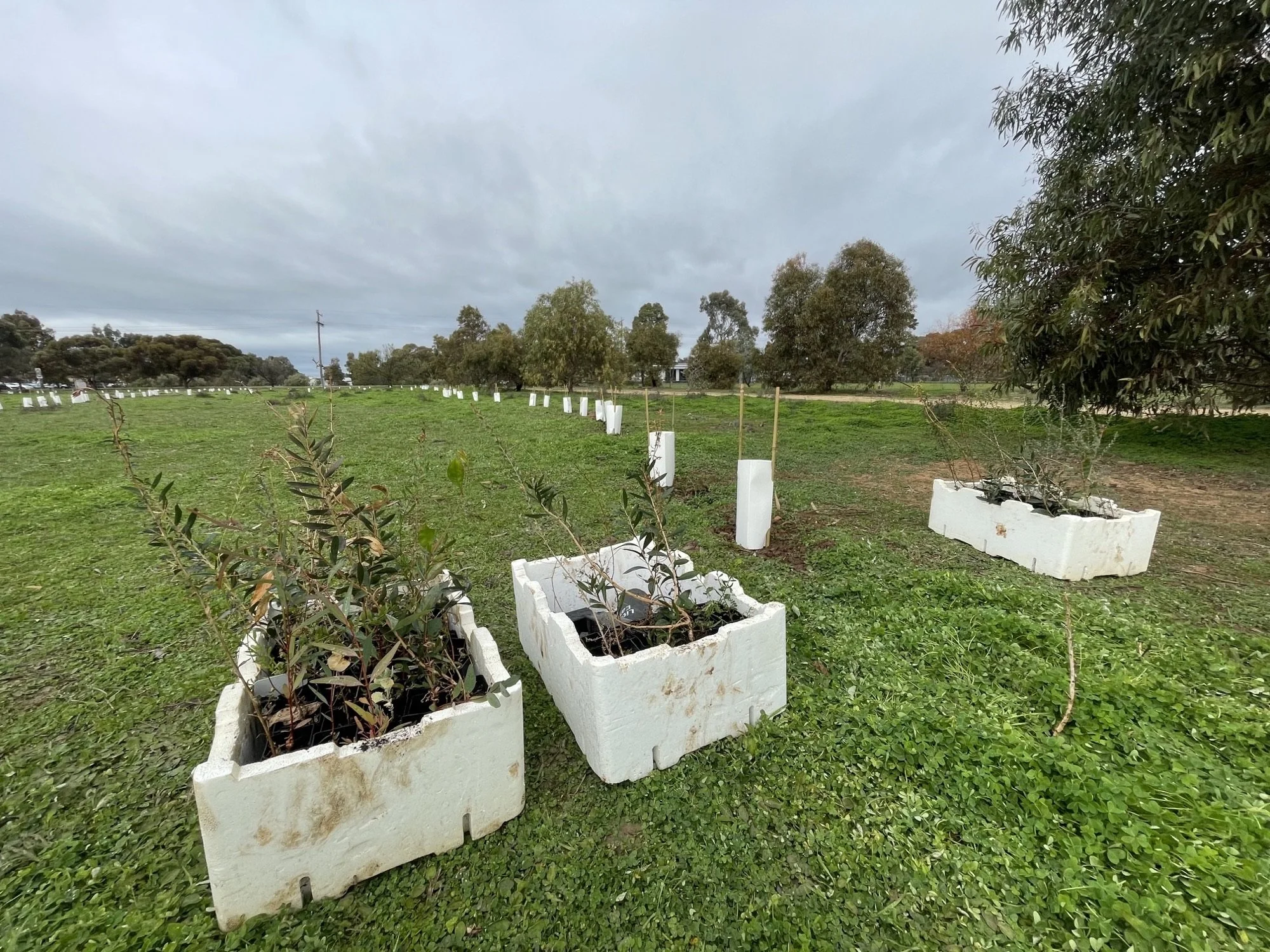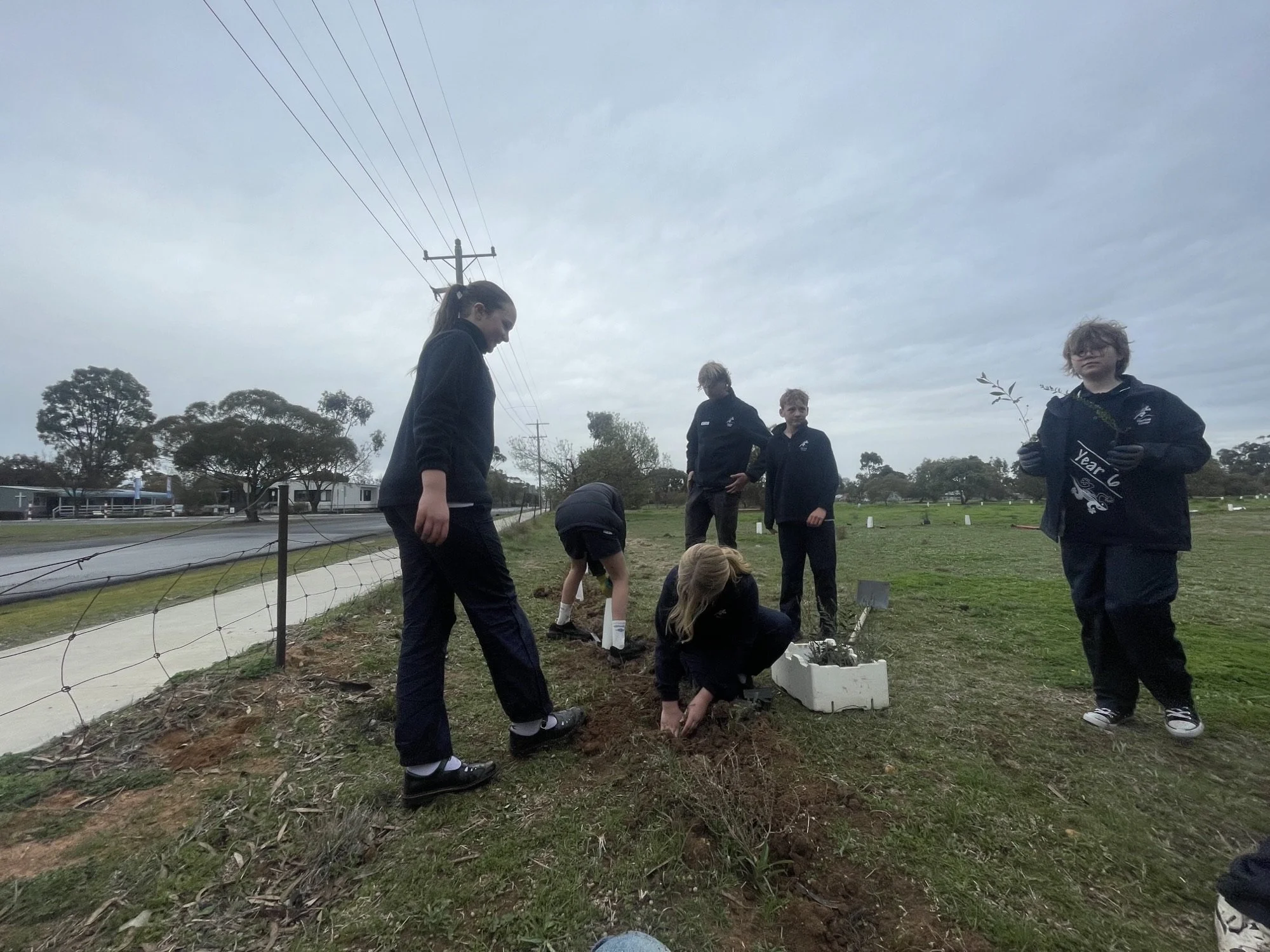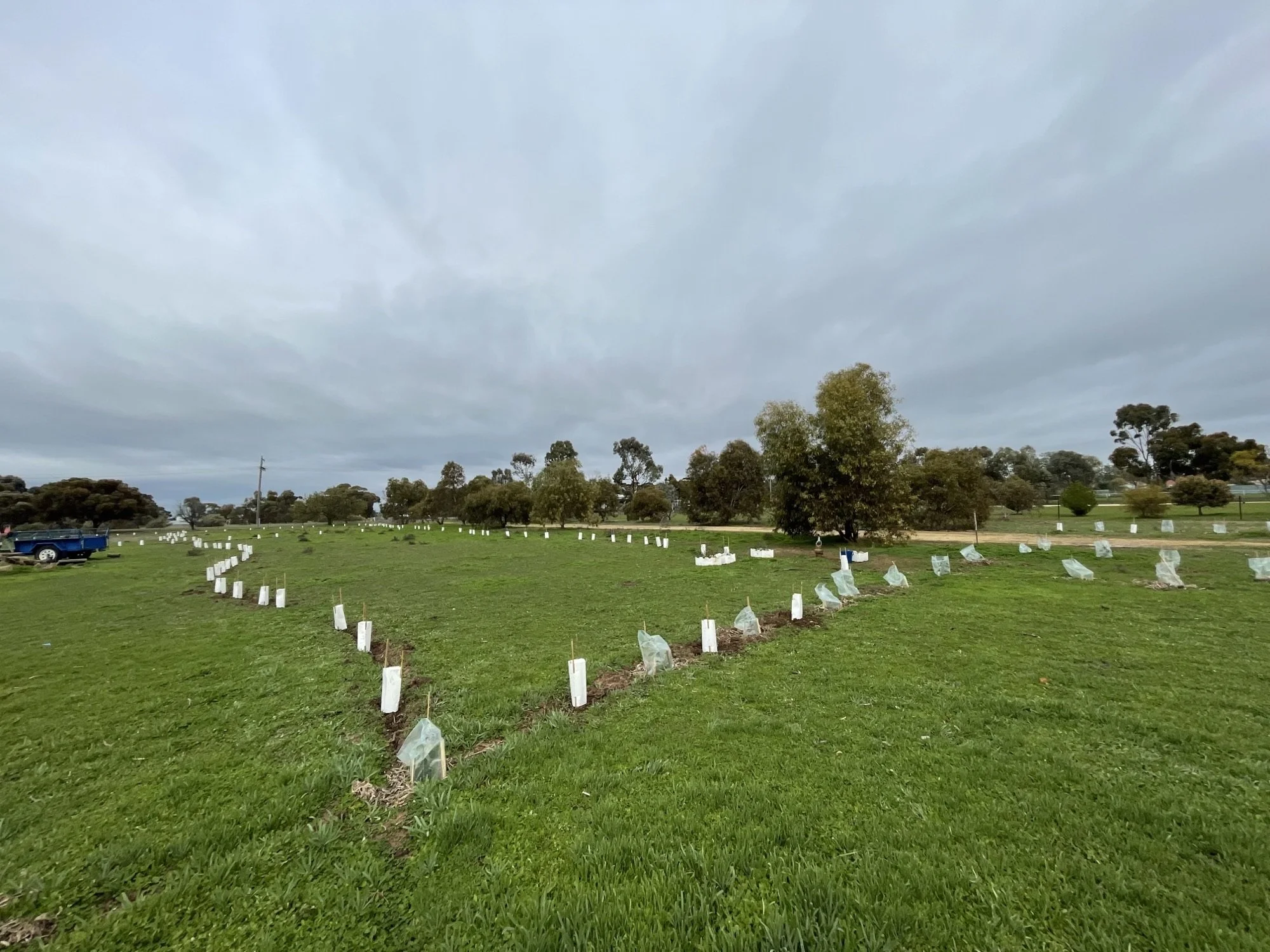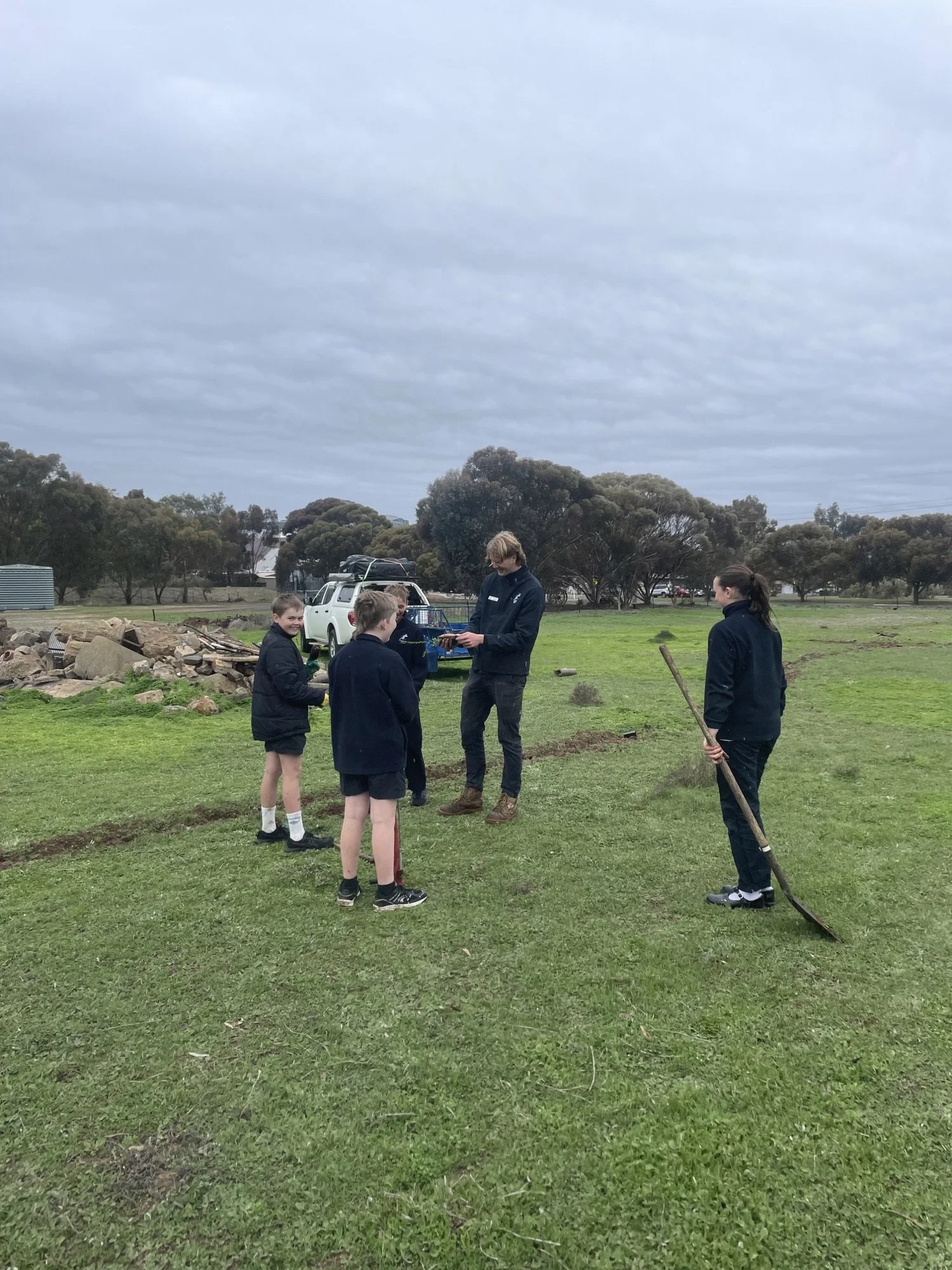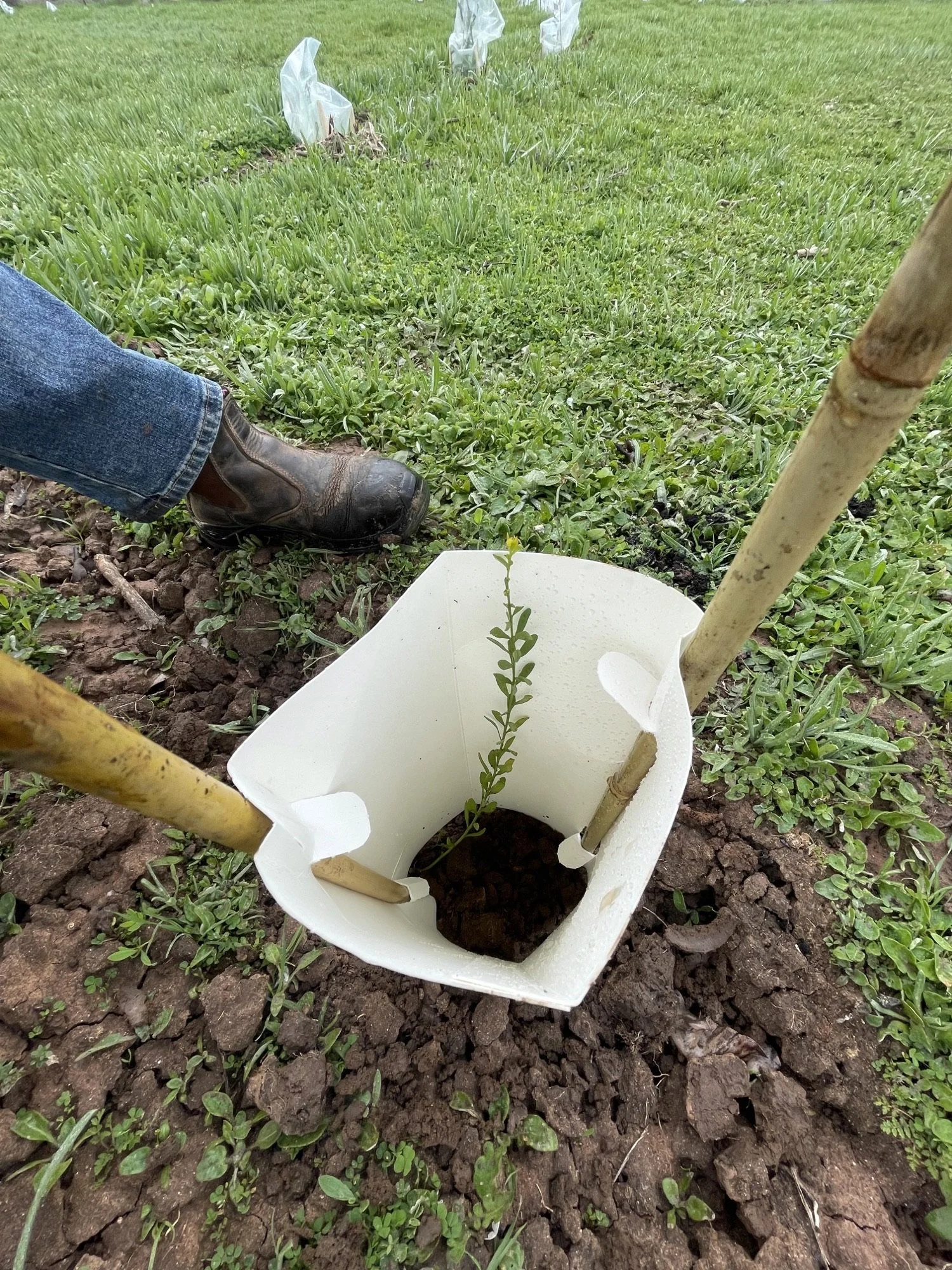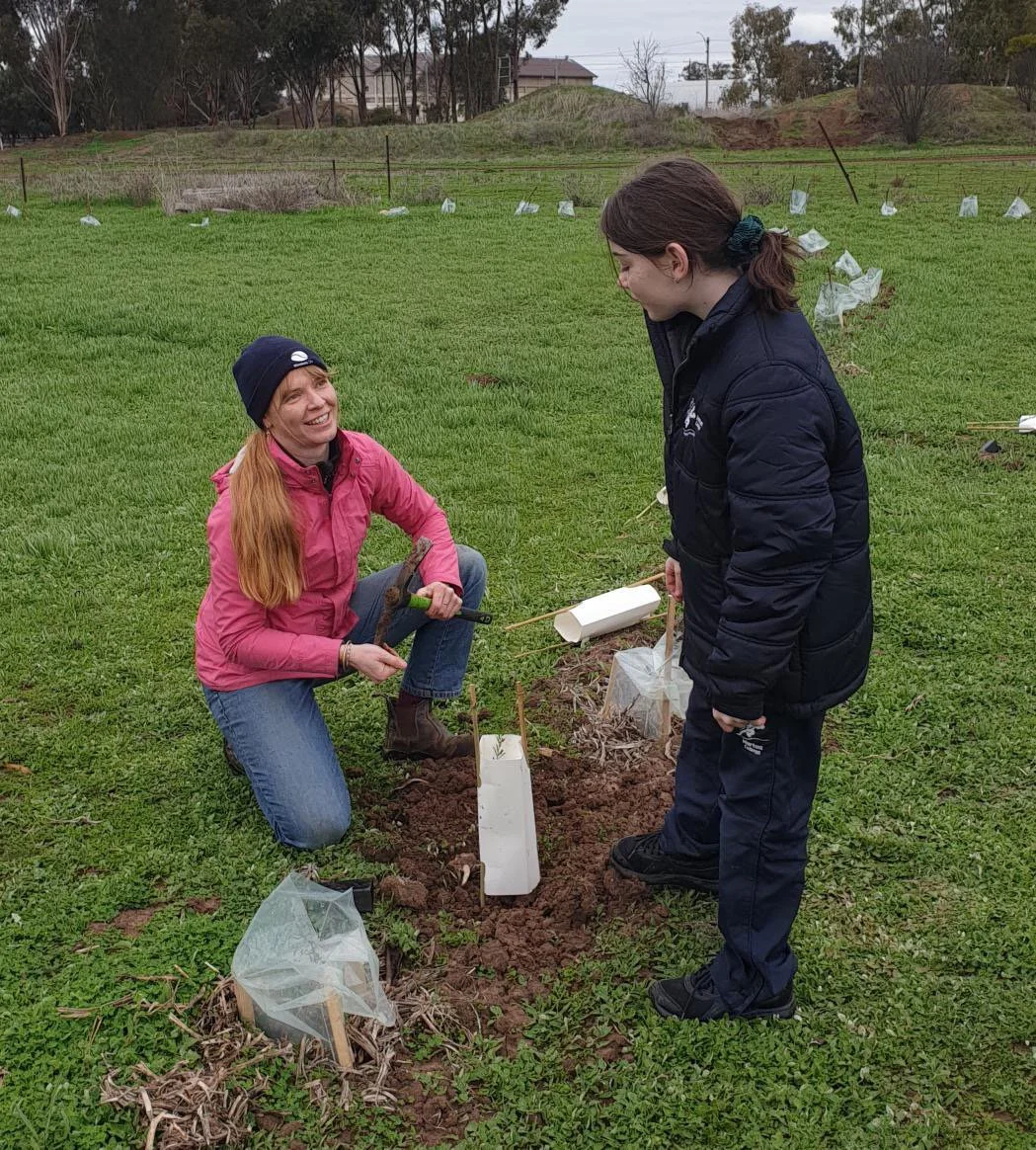Planting with Murtoa College
Mrs Crowe and the Grade 6 Class
Yarrilinks Landcare welcomed Murtoa College for another morning planting trees on August 15th, at a private block in Murtoa. Despite the chilly wind and the threat of a light rain (which fortunately waited to fall until the work was done), the students were eager to help, or at least be out of the classroom, perhaps…
A wolf spider unearthed in the planting process provided a lesson in habitat and biodiversity for curious students. Whilst wolf spiders are not aggressive in nature, we don’t endorse touching them lest it be in the best interest of the spider.
As a curious observation of human behavior, the students divvied themselves into working teams of hole-diggers (with tools), tree-planters, plant and tree-guard deliverers, tree-guard makers, and of course the ever-important social networking and peer engagement team.
The ground was friable, having already been ripped and soft from recent rain which allowed the planting team to work quickly - despite the tube stock being too large for the potti-putkis and improvisations needing to be made - a classic oversight by the facilitator. We had 200 stems to plant of assorted species eucalyptus, acacia and melalueca to add to the developing suburban bush block. The block is intended to become a biodiversity refuge and bird haven, with species native and indigenous to the area, and with the proficiency of a hoard of hungry twelve-year-olds, the job was tackled before recess.
School engagement is an important part of Landcare, as we look to the sustainability of local Landcare and Landcare group success and succession. We were able to discuss all things with the students as we worked, from aliens and isopods to Granddad’s cats and Taylor Swift, whilst learning about the importance of giving back the planet and taking care of our natural environment, which to the horror of some, includes the wolf spider who was rudely unearthed in our diggings.
Where I can’t deny the convenience of ‘free labour’ when it comes to working with schools, and whilst it might be the disposition of a pre-teenager to bemoan the cold weather and getting dirty, their curiosity and willingness to help coupled with their unique insights and wisdom gives hope to the future of environmental advocacy and action.
As the trees grow and the birds return, I hope they can look back and say, ‘I was a part of that”.

